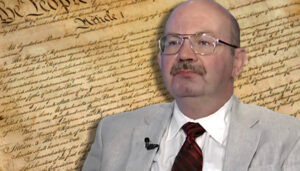 Have things finally gone too far? Is this the country you want to live in and pass down to your children and grandchildren. Is this a country you can take pride in?
Have things finally gone too far? Is this the country you want to live in and pass down to your children and grandchildren. Is this a country you can take pride in?
In a matter of just four days, the United States has irreparably damaged it’s reputation at home and abroad by invading a sovereign nation and allowing it’s federal law enforcement officers to murder American citizens in cold blood. We are now in the midst of a full authoritarian takeover.
On January 3, 2026, the United States Military invaded Venezuela to capture its president, Nicolas Maduro. To be certain, Maduro is a corrupt thug and the Venezuelan people are better off without him. But the actions taken by the Trump Administration and the military were illegal, both under international and domestic law. That’s a serious issue and those involved should be held accountable, but if past is prologue, that will never happen.
While much has been said about the illegal nature of the invasion of Venezuela and capture (kidnapping?) of Maduro, another facet of the story has been underplayed. In order to capture Maduro, the military had to destroy Venezuela’s air defenses. As a result, people were killed. A total of between 40-80 Venezuelans, both military and civilian, were killed as a result of our invasion. It’s unclear how many were killed as a result of bombing the country’s air defenses and how many were killed in an effort to reach Maduro and capture him.
In addition to the invasion being illegal, it is a very bad thing to kill 40-80 people in order to capture just two people: Maduro and his wife. It’s bad from a political perspective and it’s bad from an ethical and moral perspective. If we as Americans had heard about another country illegally invading a different country to capture their president, killing 40-80 people in the process, we would rightly condemn that country. But in this case, our president and his administration would have us believe that we are the good guys in this scenario. Do good guys invade other countries and kill their citizens while capturing their president?
The thing that makes the invasion of Venezuela all the more tragic and repulsive is that it now appears that the United States carried out this operation in order to seize Venezuela’s significant oil reserves. According to statements made by President Trump since the invasion, the United States is going to control the government of Venezuela, we are taking control of all of the oil, and the funds generated from sale of the oil will be put into an account outside the U.S. Treasury that is controlled by Trump himself. You don’t have to be a lawyer or someone steeped in foreign affairs to know that this is not right.
 Then, just three days after the invasion, The Trump Administration sent 2000 masked ICE agents into Minneapolis. One of those agents shot and killed a 37-year old mother of three. ICE refused to allow a doctor to treat the woman’s injuries, and then the President, the Secretary of Homeland Security, and the DHS Deputy Secretary all gave public statements that not only differed from each other’s statement, but were all patently false.
Then, just three days after the invasion, The Trump Administration sent 2000 masked ICE agents into Minneapolis. One of those agents shot and killed a 37-year old mother of three. ICE refused to allow a doctor to treat the woman’s injuries, and then the President, the Secretary of Homeland Security, and the DHS Deputy Secretary all gave public statements that not only differed from each other’s statement, but were all patently false.
There’s not a lot I can say about the murder of the woman, Renee Nicole Goode, other than it was wrong and completely unnecessary. To say that the ICE agent that shot her did so in self-defense is to disregard the facts as captured in multiple videos. I have no doubt that DHS and DOJ will not adequately investigate the shooting or hold the ICE agent accountable, but the City of Minneapolis and the State of Minnesota certainly should.
But it’s the blatant lies being told by Trump, DHS Secretary Kristi Noem, and DHS Deputy Secretary Trish McLaughlin that turn this tragedy into something even worse. It’s bad enough that federal law enforcement officers are out on the streets of our cities shooting our fellow citizens, but then the people in charge go out and lie about what happened, despite the fact that we all saw what happened.
President Trump claimed that Renee Goode ran over an ICE agent and that the agent had to be taken to the hospital. Trump said he had seen the agent get run over and that he is lucky to be alive That never happened. It’s a lie.
Kristi Noem said that the ICE officers got stuck in a snow drift and that Renee Goode used her vehicle to ram them while they were trying to push their vehicle out of the snow. That’s a complete and utter fabrication. Nothing even close to that happened.
Just an hour after Renee Goode was killed, Trish McLaughlin took to X to justify the shooting, claiming that Goode was a “violent rioter” who “weaponized her vehicle” in an attempt to run over and kill law enforcement officers. All you have to do is watch the video to see that this too is a lie.
Whether you voted for Trump or not, don’t you think that Americans deserve to be told the truth about what happened in Minneapolis? Don’t you think that politicians should have enough respect for you not to make up things that are so obviously untrue?
At the moment, I am ashamed of my country. What Donald Trump, his administration, and his enablers in Congress have done is a disgrace. There are those dyed-in-the-wool Trumpers who still support and defend him, no matter what he and his administration do. I’ve stopped (or at least tried to stop) talking to them because they have no interest in having a fact-based conversation.
But for the rest of us—those that voted for Trump but have come to regret their vote, those that don’t pay attention to politics, and those who have opposed Trump from the beginning—can we finally say enough is enough? If not, what has to happen for you to walk away from the outwardly corrupt and criminal behavior of this administration? Where would you draw your line in the sand?
I didn’t want to write this. I’m trying not to write political posts anymore. But I can’t sit idly by while Trump and his cronies turn the United States into the bad guy. I can’t stay quiet while they allow and defend the murder of an American citizen in broad daylight for all to see. I can’t remain mute when our democracy and the rule of law is damaged and diminished a little more each day. What’s happening now in the United States is a travesty.
Our forefathers fought for freedom, for civil rights, for human rights, and for a government that followed the rules. We were once that shining city on a hill, a nation that other nations looked up to and tried to emulate. Now, we are a scourge on the world stage, bombing boats in international waters and invading a sovereign nation. We violate and disrespect other nations because we have become arrogant and selfish. We were once the world’s preeminent superpower and we have traded that in to become nothing more than the bully of the Western Hemisphere. Those that were our closest friends and allies can no longer trust us. They’ve taken to forming their own alliances, partnering with China and excluding us.
At home, our economy is in the toilet due to a self-inflicted wound called tariffs, the government has started an anti-immigrant campaign under the guise of stopping illegal immigration (it was never about illegal immigration), the president openly and arrogantly blocks information demanded by Congress concerning the most notorious pedophile in our country’s history to protect his friends (and maybe himself), and the government has taken to deploying the military in cities unfriendly to the president.
This is all wrong, and I fear the longer it goes on, the more normalized it’s going to become. Now is the time to stand up and speak up. Now is the time to fight back. When you think about the damage the Trump Administration has done to our reputation abroad and our safety and security at home in just four days, imagine the harm they can do over the next three years if we don’t push back. Raise your voice. Take to the streets. Refuse to go along to get along. Take back your country. If you don’t, nobody will.

 A Soldier’s Story
A Soldier’s Story Earlier this year, I made the decision to stop writing about Donald Trump and the state of our nation, and instead focus on other writing projects. It was not a decision I came to easily. To me, turning away from the chaos, divisiveness, vitriol, and cruelty that is the Donald Trump presidency does nothing to defeat the authoritarian impulses of the president, instead giving him and his administration tacit permission to get away with their efforts to take our country down a dark, un-American path. Even so, resistance can turn into a full-time job, and it can be debilitating to one’s mental health. I needed a break, and I needed time to do other things.
Earlier this year, I made the decision to stop writing about Donald Trump and the state of our nation, and instead focus on other writing projects. It was not a decision I came to easily. To me, turning away from the chaos, divisiveness, vitriol, and cruelty that is the Donald Trump presidency does nothing to defeat the authoritarian impulses of the president, instead giving him and his administration tacit permission to get away with their efforts to take our country down a dark, un-American path. Even so, resistance can turn into a full-time job, and it can be debilitating to one’s mental health. I needed a break, and I needed time to do other things. On a recent episode of the podcast,
On a recent episode of the podcast,  Imagine you’re a citizen of Germany in the early 1930s. Your country is coming out of a devasting defeat in World War I, your economy is in the toilet, and your once great country is in the doldrums, seemingly unable to get back on its feet. In 1933, a strange little man by the name of Adolph Hitler, a convicted felon, was elected chancellor of Germany, promising to return the Fatherland to its former greatness.
Imagine you’re a citizen of Germany in the early 1930s. Your country is coming out of a devasting defeat in World War I, your economy is in the toilet, and your once great country is in the doldrums, seemingly unable to get back on its feet. In 1933, a strange little man by the name of Adolph Hitler, a convicted felon, was elected chancellor of Germany, promising to return the Fatherland to its former greatness. Is this really what we’ve come to?
Is this really what we’ve come to? What happened yesterday profoundly changed the relationship the American people have with its government. Over the course of a 70-minute speech Donald Trump gave to our 800 highest ranking military leaders, he laid out a vision for the military and the country that involves the government of the United States waging war on American citizens.
What happened yesterday profoundly changed the relationship the American people have with its government. Over the course of a 70-minute speech Donald Trump gave to our 800 highest ranking military leaders, he laid out a vision for the military and the country that involves the government of the United States waging war on American citizens. Recently, a friend of mine commented on Facebook, responding to someone who said that when those on the right don’t have a decent argument, they resort to name calling. This comment was made after a series of comments about the assassination of Charlie Kirk. My original post was meant to denounce political violence, regardless of the party affiliation of the victim or the perpetrator. Here’s what I said:
Recently, a friend of mine commented on Facebook, responding to someone who said that when those on the right don’t have a decent argument, they resort to name calling. This comment was made after a series of comments about the assassination of Charlie Kirk. My original post was meant to denounce political violence, regardless of the party affiliation of the victim or the perpetrator. Here’s what I said: Since my separation in 2013 and divorce in 2016, I have struggled with doing things by myself. It’s always great to get together with friends or family, but those times are sadly the exception rather than the rule. Most of the time I find myself alone. And more often than not, my urge to go out and do something is defeated by my hesitancy to be out at an event by myself.
Since my separation in 2013 and divorce in 2016, I have struggled with doing things by myself. It’s always great to get together with friends or family, but those times are sadly the exception rather than the rule. Most of the time I find myself alone. And more often than not, my urge to go out and do something is defeated by my hesitancy to be out at an event by myself. Most of our Founding Fathers were born in the 1700s. For instance, George Washington, the father of our country, was born in 1732. Benjamin Fraklin was born in 1706. Thomas Jefferson, who is credited with writing the Declaration of Independence, was born in 1743. And Alexander Hamilton, who’s not throwing away his shot (IYKYK), was born in 1755 or 1757. It’s up for debate. But it might surprise you to learn that the youngest Founding Father, Gregory Watson, wasn’t born until 1963. How is that possible? Let me explain.
Most of our Founding Fathers were born in the 1700s. For instance, George Washington, the father of our country, was born in 1732. Benjamin Fraklin was born in 1706. Thomas Jefferson, who is credited with writing the Declaration of Independence, was born in 1743. And Alexander Hamilton, who’s not throwing away his shot (IYKYK), was born in 1755 or 1757. It’s up for debate. But it might surprise you to learn that the youngest Founding Father, Gregory Watson, wasn’t born until 1963. How is that possible? Let me explain.